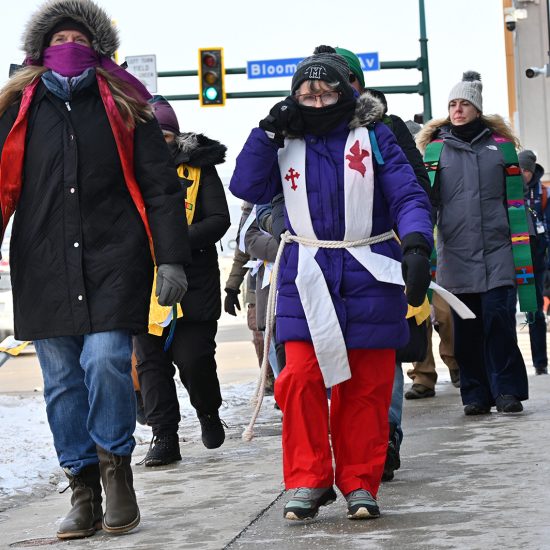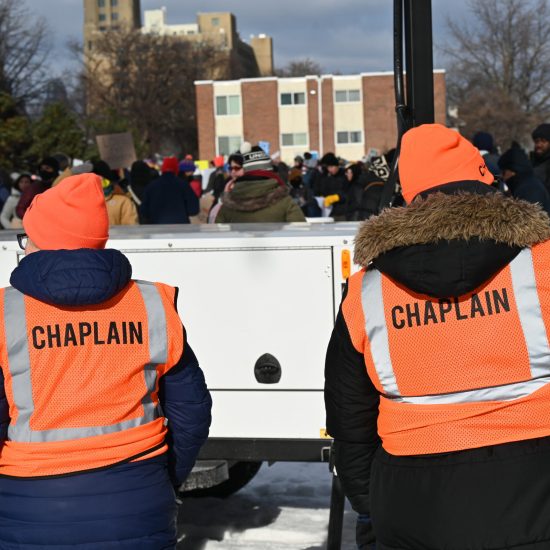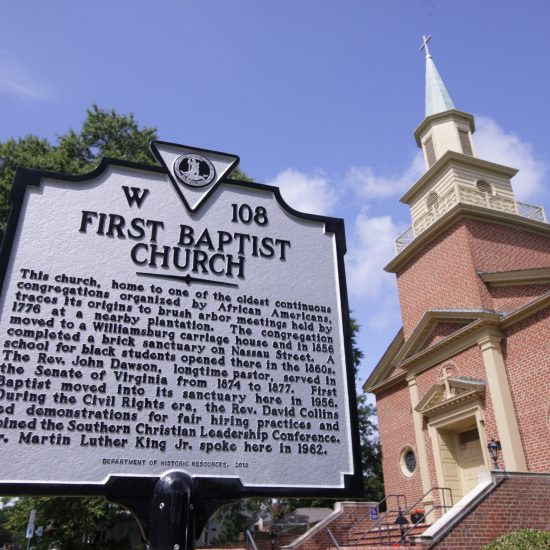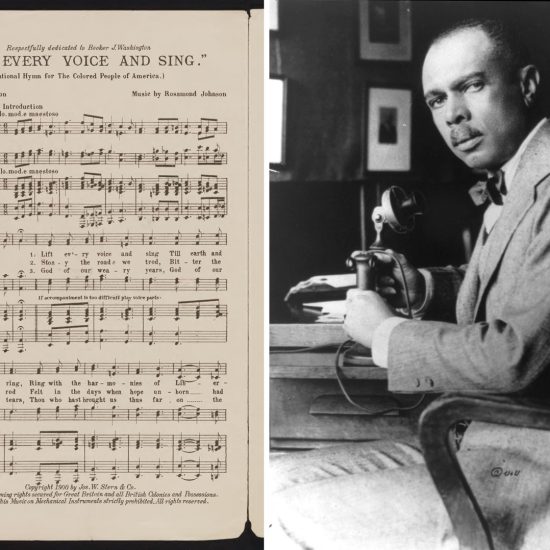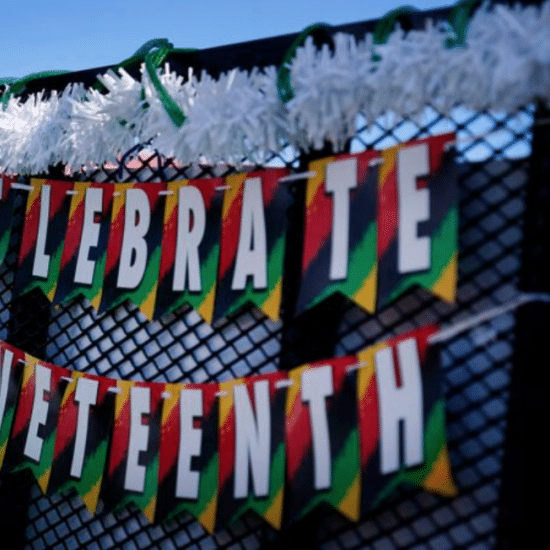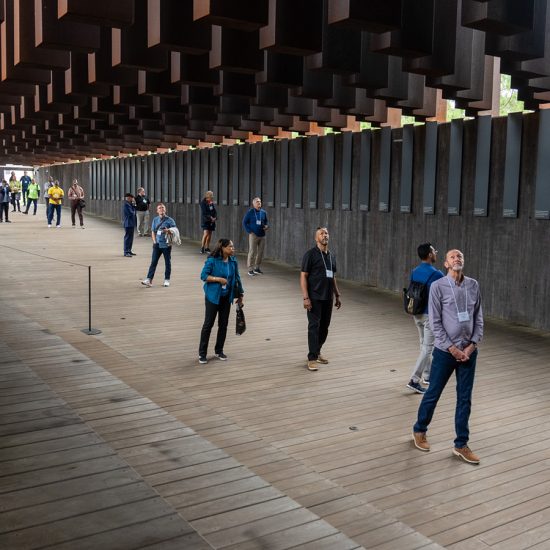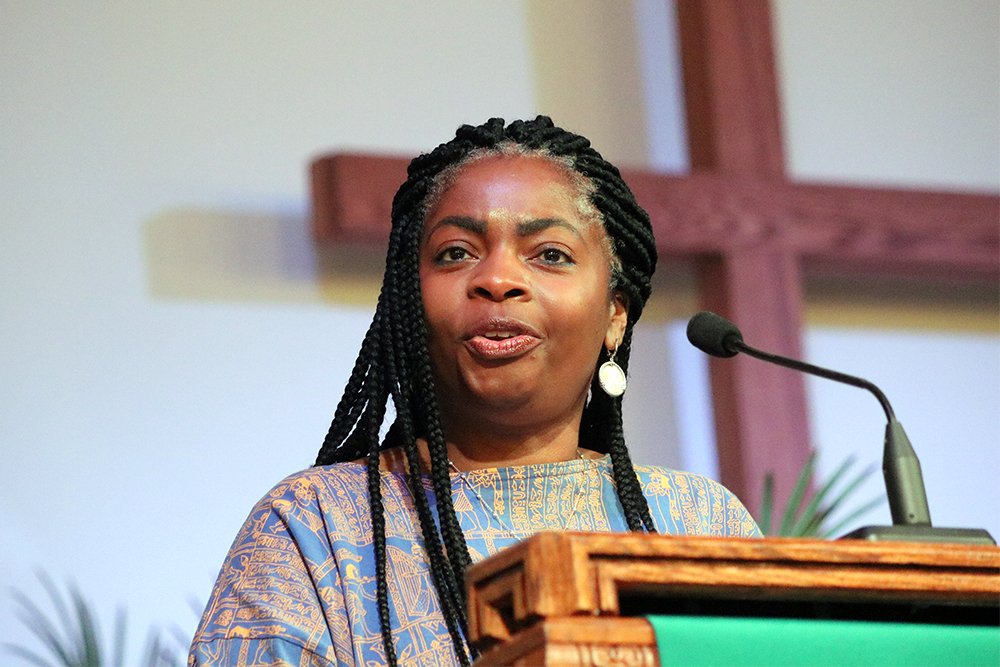
(RNS) — This Juneteenth, Pastor Eddie Anderson will be among many social justice activists, educators and faith leaders around the country reflecting on the role of the black church in the Black Lives Matter movement. Anderson will participate in a breakout discussion that is part of “ JusticeCon: A Path Towards Freedom,” a virtual conference hosted by The Greater Allen AME Cathedral of New York. Al Sharpton, Sens. Kamala Harris and Cory Booker, and Senate Minority Leader Charles Schumer are among those participating.
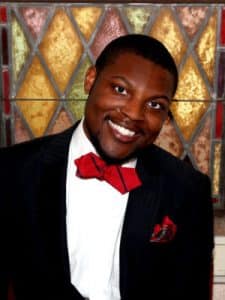
Pastor Eddie Anderson. (Cherie Weldon/Religion News Service)
Anderson then plans to join Black Lives Matter-Los Angeles organizers along Obama and Martin Luther King Jr. boulevards for the “Juneteenth Black Freedom March” in South Central LA. And on Sunday, he has a sermon prepared that will highlight what freedom looks like while commemorating Juneteenth.
“This year is different because of the moment,” said Anderson, pastor at LA’s McCarty Memorial Christian Church. “This is more of like a third reconstruction moment in our country that we are really leaning into.”
Juneteenth — a contraction of “June” and “nineteenth” — honors the day in 1865 when enslaved black people in Galveston Bay, Texas, were notified by Union troops they were free by executive decree. This was two years after the Emancipation Proclamation was made effective in 1863.
Public celebrations honoring the day have been traced in Houston as early as 1872 in a place that was called Emancipation Park, said University of Arizona historian Tyina Steptoe in a June 17 Q&A discussing the holiday. Steptoe found that around the World War I era, local hotels would serve carryout dinners to white families who had black maids “because the understanding was that African Americans had the day off.”
“Juneteenth being a black holiday was something that white Texans certainly recognized, and that they understood was going to affect the local economy around black labor,” Steptoe said.
Over time, the day has been marked by cookouts, dancing and music in celebration of freedom and black empowerment. This year, some companies are giving their employees a paid day off to honor the holiday. In the wake of the May 25 police killing of George Floyd in Minneapolis, clergy and faith leaders around the country have joined marches and protests calling for an end to police brutality and calling for the defunding of local police departments.
Now, many houses of worship are hoping to continue the momentum with the observance of Juneteenth, through Black Lives Matter demonstrations, anti-racist workshops and virtual celebrations. For some congregations, like Rock Spring Congregational United Church of Christ in Arlington, Virginia, it will be their first time commemorating the holiday.
On Friday, Rock Spring Congregational will gather around the church campus for a “Juneteenth Witness and Demonstration.” Participants will line the sidewalks around the church campus and display signs declaring solidarity with the Black Lives Matter movement. With the ongoing COVID-19 pandemic, they plan to wear masks and stand 6 feet apart.
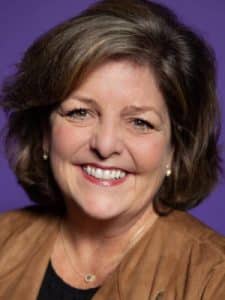
Kathy Dwyer. (OAR/Religion News Service)
The demonstration is being held in coordination with UCC churches throughout the Central Atlantic Conference, which stretches from New Jersey to Richmond. Rock Spring’s senior pastor, Kathryn Nystrand Dwyer, said it’s important for the mostly white congregation to take a stand.
“This is something our congregation is feeling very passionate about, and also eager to learn more,” Dwyer said.
On June 24, the church will launch a six-week course on challenging white supremacy. It will be taught by Beverly E. Mitchell, a professor at Wesley Theological Seminary.
“With recent events we’re looking for all ways that we can be supportive of people of color,” she added.
This will not be the first year Middle Collegiate Church in New York is commemorating Juneteenth. It’ll just be doing it bigger.
“Juneteenth Now: Get Us Free, ” organized by Middle Church’s nonprofit The Middle Project, will feature actors and performers including Jenifer Lewis from “Black-ish,” Nicole Ari Parker from “Remember the Titans,” Tituss Burgess from “Unbreakable Kimmy Schmidt,” and gospel singer BeBe Winans.
Theater stars L Morgan Lee, Stephen Hanna and Elizabeth Stanley will also be participating. It’s an online event that people can access for free or by donating anywhere from $10 as a “movement builder” to $2,020 in “reparations.”
Jacqueline J. Lewis, the church’s senior minister for public theology and transformation, described the event as a multiracial but black-centered party. Middle Church, Lewis said, is made up of people of faith who are teachers, lawyers, parents, restaurant workers, doctors, nurses, and restaurant workers.
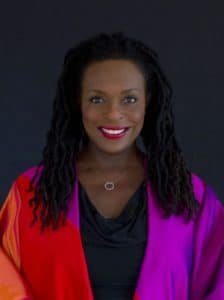
Jacqueline J. Lewis. (Béatrice de Géa/Religion News Service)
“We all just said, ‘What if right now we highlighted this powerful time that is happening in America by doing a revival?’” Lewis said. “It’s just going to be the best of black culture, surrounded by the best of multiracial appreciation.”
Lewis stressed Middle Church has always been anti-racist and intersectional and is continuing this work during the current movement for Black Lives Matter. This week, Lewis offered a two-part master class, “The Call of This Moment: An Anti-Racism Workshop,” to explore how “our societal ills stem from unexamined racism.” Middle Church will also be hosting a Juneteenth prayer vigil on Friday and on Saturday will be participating in the Poor People’s Campaign Virtual Assembly and March on Washington.
To Lewis, these are all ways of saying “from a place of faith, Black Lives Matter.”
United Methodist Church leaders plan to honor Juneteenth with the launch of a “ Dismantling Racism: Pressing on to Freedom ” initiative.
Bishop Cynthia Moore-Koikoi described the initiative as a “guided journey” that will include town hall meetings, liturgical acts, Bible studies, and other resources “that push people to take action.” She said the components of the initiative will continuously be shared with the denomination after the launch and into the postponed 2020 General Conference Session.
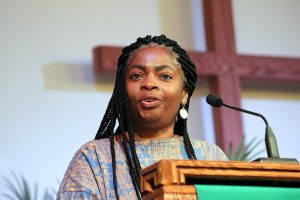
Cynthia Moore-Koikoi speaks at a United Methodist Women event Oct. 26, 2017. (WPAUMC/Religion News Service)
Moore-Koikoi said she hopes this initiative is solidified with legislation, but she said, “It’s this work we’re doing now that we hope will change hearts and minds.” She stressed that “to this day we remain in bondage to systems of racism and white privilege” and said Juneteenth is a celebration of the “initial steps that are taken toward freedom.”
“We are as a denomination taking yet another initial step, and we’re celebrating that initial step,” Moore-Koikoi said. “That’s why we’ve chosen this day.”
To Anderson, the faith community has always been the place where the black experience is affirmed. If you wanted dignity in the black community, you would go to the black church, he said.
“No matter if you were a car washer, or a street sweeper, or a doctor … at the church we all had dignity,” Anderson said. “At the church, we all were considered equal.”
Now, Anderson said that freedom needs to extend beyond that.
“We want freedom in all parts of our lives,” he said.

